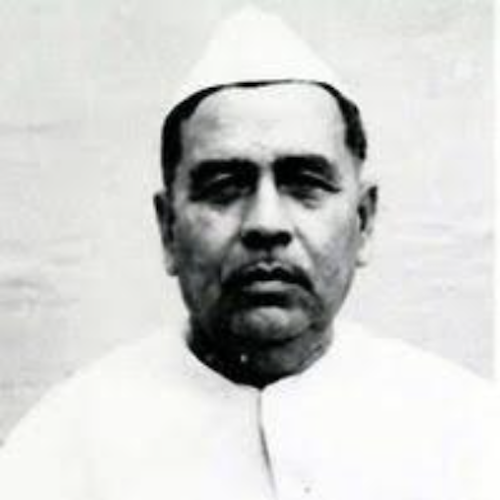Early Life
Krishna Ballabh Sahay was born on 31 December 1898 at Sheikhpura, in Patna district of Bihar. He was the eldest son of Munshi Ganga Prasad, who was then serving as a Daroga in the Indian Police.
He completed his B.A. Hons in English with a first class from St Columbia’s College, Hazaribagh in the year 1919.
Role in India’s Independence Movement
Sahay is largely remembered for his participation in the nationalist movements – namely the Civil Disobedience Movement and the Quit India Movement, and for his strong support of the abolition of the Zamindari system.
In the early 1930s, Sahay actively joined Mahatma Gandhi in the Civil Disobedience Movement, during which he was jailed 4 times. When the Quit India Movement started in 1942, Sahay worked with Dr Anugrah Narayan Sinha to carve out an action plan for Bihar, He also personally led the movement in Hazaribagh district. His foray into electoral politics began with his election to the Bihar Legislative Assembly in the year 1937.
Sahay’s strong views against the Zamindari system developed as a result of his witnessing the extreme suffering of the peasantry across Bihar. The legal framework developed by the British had deprived the Adivasi peasantry of their land-holdings. Their customary rights to own the lands they tilled (known as khuntkatti rights), were disregarded and gradually eroded as a result of the apathy of the colonial state. The result was massive out-migration of the Adivasi peasantry of Bihar into neighbouring states as agricultural or indentured labourers.
Sahay was well aware of the injustices meted out to these peasants. In multiple meetings and speeches conducted in the 1940s, he was immensely vocal about these difficulties faced by the peasantry.
Contribution to Constitution Making
Sahay did not actively participate in the Constituent Assembly.
Later Contributions
Sahay was appointed the Revenue Minister of Bihar in the first interim government after independence. He was responsible for the passage of the Zamindari Abolition Bill which made Bihar the first state to pass such an Act.
His tenure as the Chief Minister of Bihar from 1963–67 is remembered for the multiple measures taken to successfully implement the abolishment of the Zamindari system on the ground. His work earned him the title of “Iron Man of Bihar”. He also contributed in the set up several industries including the Bokaro Steel Plant and the Barauni Refinery.
On 3 June, 1974, Sahay passed away as a result of a car accident near Hazaribagh.
- The Adivasi Peasantry of Chotanagpur and the Nationalist Response by P.K. Shukla (Social Scientist, 2011)
- Politics in Jharkhand during the Civil Disobedience Movement (1930-1934) by L.N. Rana (Indian History Congress, 2005)

